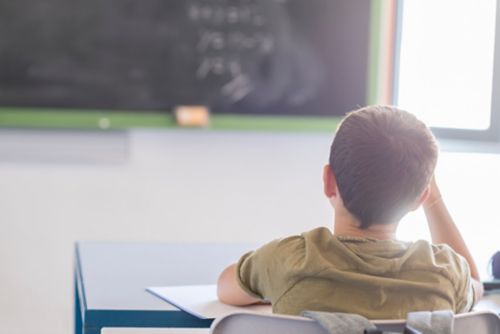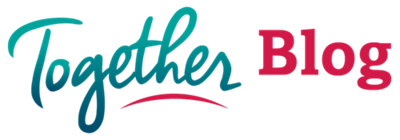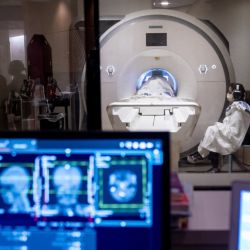Early Support Boosts School Success for Brain Tumor Survivors

Identifying learning problems early and getting assistance can help brain tumor survivors achieve their personal best.
Young survivors of brain tumors may have learning problems when they start school. Their brain develops quickly during the first few years and makes new connections that last a lifetime. This is a critical time for children to learn language, problem solving, and social skills.
The ability to learn can be affected by surgery, cancer treatments, and related health problems. Young brain tumor survivors may:
- Have complications of their brain tumor such as fluid build-up in their brain (hydrocephalus)
- Have complication of their treatment such as hearing loss
- Miss important interactions with others during treatment
- Not be able to do common activities such as going to daycare, having play dates, or taking trips to the park
- Struggle to reach early developmental milestones like others their age
By the time they reach school age, they may lag behind other children who do not have a serious illness.
How childhood brain tumors affect school performance
Our SJYC07 clinical trial sheds new light on why young brain tumor survivors have problems learning when they start school. We also have recommendations for what parents can do to help.
We found that young cancer survivors struggle with attention, learning, planning, and problem solving. They do not do these activities as quickly as others their age. These problems, known as cognitive late effects, affect their development and make them less prepared to start school. Children in the study were slower to develop new skills, such as reading and math.
This effect was not the same for all children who survived childhood brain tumors. A child’s school readiness was affected by their parents’ or caregivers' amount of education and their type of job (known as socioeconomic status). Those with a lower socioeconomic status may struggle to find resources to help manage their child’s problems after treatment.
Our goal is to develop one of the first early intervention programs to teach parents about their child’s developmental needs during and after treatment.
Early help can make a difference
Results from our SJYC07 study will help health care teams plan better treatments and find ways to lower the chances of long-term learning and thinking problems. Helping children who experience these problems early is called early intervention. Early intervention includes services and support for children with developmental delays and their families. It can help children improve their speech, learn social skills, and become more independent.
Before this study, we did not know much about how to help cancer survivors under age 4 overcome these problems. But now, St. Jude Children's Research Hospital has a new research study, SJiMB21, to find the best treatment for young children with medulloblastoma. We will closely monitor their thinking and social skills. We will also try an early intervention approach adapted from work with young children from lower socioeconomic status who lack a notable medical history.
Our goal is to develop one of the first early intervention programs to teach parents about their child’s developmental needs during and after treatment. This program will also:
- Show parents how to best interact with their child
- Help them support their child
- Connect parents with helpful resources
The program includes a parent education session about brain development and their important role as caregivers as well as a mobile app with simple activities that parents can do in the hospital to help their child at their current developmental level.
“What you do matters. Repetition is important.”
How to get extra help for your child
Young children who had cancer treatment should have their thinking skills and hearing checked regularly. Regular checkups with a child’s care team can help providers find problems quickly so they can get help early. The earlier a problem is noticed and treated, the better.
Here are some ways to get resources to help your child with their challenges at school:
- Learn what developmental milestones are common for your child’s age.
- Watch for any problems with thinking, learning, communicating, playing, doing self-care such as feeding and getting dressed, or other physical activities.
- If you notice any problems with your child’s skills, talk with your care provider. They may test your child to see if they are not meeting milestones, monitor their progress, or give you a checklist of things to watch for. Your care provider can also tell you what you can expect for your child, based on their history.
- You can contact the pediatric or psychology departments at your local hospital.
- If your child is younger than age 3, you can contact your state’s early intervention programs about services.
- If your child is age 3 or older, you can contact their school district or local elementary school.
- If your child is in school, an Individualized Education Program (IEP) can provide help such as small-group instruction, tailored teaching methods, and classroom support.
- You may be able to ask for a 504 plan from your child’s school that tells how the school will address your child’s problems and make needed changes.
Tips to help your child’s development at home
You can take simple steps to help your child with development issues after treatment. What you do really matters, and little steps add up. It is important to repeat learning activities consistently to help your child learn and do their best.
Here are some things you can do daily to support your young child’s development:
- Recognize their differences: Understand that your child may develop differently from others their age, but every child can learn at their own pace. Use every chance you get to help them grow.
- Spend quality time together: Set aside regular one-on-one time to interact with your child.
- Try “serve and return”: This is like playing a game of tennis. Watch to see if your child makes faces, gestures, or babbles. Return the serve by repeating these back and expanding on them. This responsive activity helps their brain develop and improves social skills.
- Talk to your child: Speak warmly and lovingly to your child. Help them learn new words by naming objects, body parts, or things they see in daily life.
- Read together: It is important to read to your young child even if they do not understand everything yet. Point to pictures while you read, ask them questions, or have them guess what happens next in the story. Trips to the library are great.
- Do fun activities: such as singing, dancing, or coloring and play with them in a way that helps them develop.
- Teach new skills: such as shapes, letters, and numbers by first using matching (sort similar objects together), then recognition (“show me the square”), and finally naming (“what is this called?”).
- Repeat the same activities often and be consistent: This helps their brain make the connections they need to learn.
Read the research paper
Somekh MR, Ashford JM, Swain MA, Harder LL, Carlson-Green BL, Wallace J, Kaner RJ, Billups CA, Onar-Thomas A, Ali JS, Harman JL, Merchant TE, Gajjar A, Conklin HM. Academic Readiness among Young Children Treated for Brain Tumors: A Multisite, Prospective, Longitudinal Trial. J Natl Cancer Inst. 2024 Aug 20:djae194. Epub ahead of print.
Find other resources
Dolly Parton’s Imagination Library for free books to read to your child.





